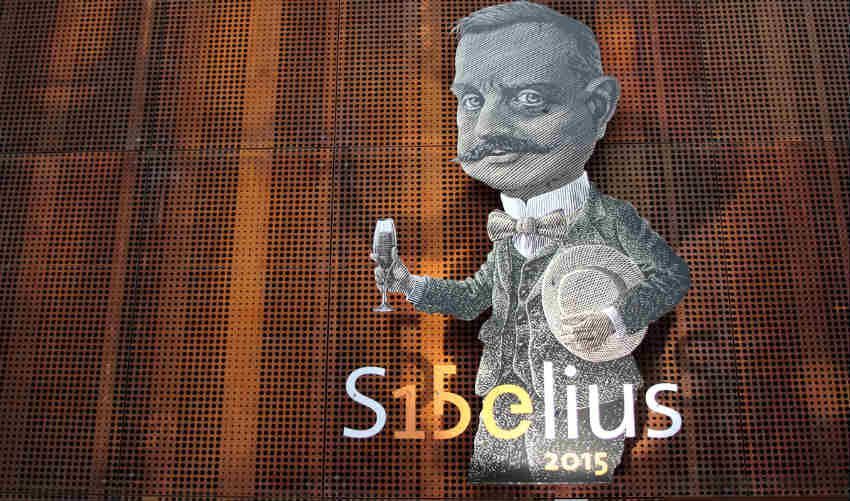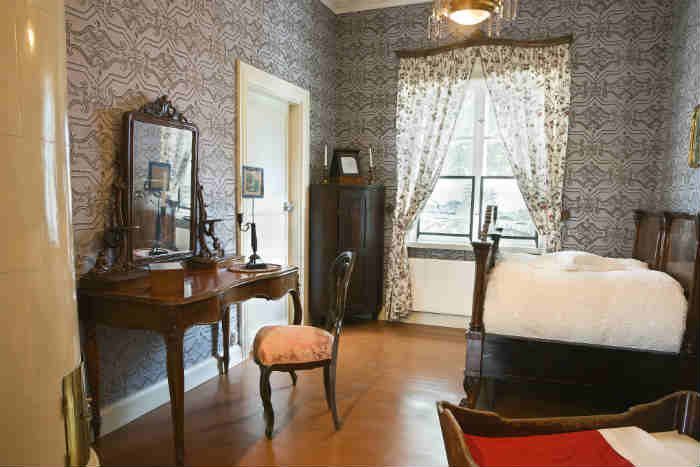This year is the 150th anniversary of the birth of renowned Finnish composer Jean Sibelius in 1865. To mark the occasion, A large number of events have been planned in Helsinki and throughout Finland, continuing up until the composer’s birthday on 8 December.

The year began with concerts combining works by Sibelius and Tchaikovsky, who was an influence on the Finnish composer particularly in his early years.
In keeping with the composer’s close connection to the Finnish landscape, a special route has been created known as the Path of Sibelius which takes tourists on a journey through the most important locations in his life. As well as including the town of his birth, the route also incorporates the most important sites in Helsinki that influenced his musical career and other locations where he resided in summer or wrote his compositions.

A much more in depth examination of the artistic influences that shaped Sibelius was provided by an exhibition staged by the Ateneum Art Museum in Helsinki that ran until 22 March. Sibelius and the World of Art takes a look at the connections the composer made with Finnish artists and those in other countries, as well as the impact of nature on his works. Many, including Sibelius himself, have pointed to his sixth symphony as one of the most striking examples of his connection to the natural world.
Maybe the extensive focus on Sibelius will provide some new ideas on one of the biggest questions concerning his career: why did he produce so little music in the last thirty years of his life? Writing about a visit to Sibelius’ home, which has now been turned in to a museum by the Finnish government after they purchased it from the composer’s daughter in the 1970s, Tom Service pointed out that an eighth symphony had been planned and even advertised in the 1930s. But it appears Sibelius was not satisfied with the end result and it was never performed in public. Most experts believe that any manuscripts and notes for the piece were burned by the composer in 1945.
His difficulty in completing the work appears to have been caused by his horror at the impact of World War II, which had the same effect on a number of artists. Although Sibelius received much criticism for welcoming the creation of a German Sibelius Society by the Nazis, he seems to have expressed opposition to their politics in personal statements. In 1943, he explained the burden the terrible consequences of the war was having on his artistic output, stating to his secretary, “I have a great work under way and I would like to get it ready before I die. But the inhumanity of the war hinders my work. I cannot sleep at nights when I think about it.”
His seven symphonies still represent a major contribution to classical music and remain popular, along with his other compositions. The BBC Symphony Orchestra commissioned six conductors to lead the performance of all of his symphonies over the 2011-12 season. Instead of emphasising Sibelius’ Finnish national identity, which has been a dominant interpretation of his role, two of the conductors in interviews with The Guardian stressed the universal qualities of his music. John Storgårds commented, “In the end, Sibelius has a very positive energy. Even in the darkest parts of his music, there is something strong: some tangible expression of the energy of life – even in the blackest moments of the Fourth. That’s what makes Sibelius’s music still speak to people today. It’s this spirit that really matters: the joy of being alive.”
Although the main focus of the Sibelius celebrations is obviously Finland, orchestras on the international stage are seeking to present his works in this jubilee year. The Berlin Philharmonic played his fifth, sixth and seventh symphonies at a series of concerts in the German capital in early February before taking the show on tour to London’s Barbican Centre later in the month.
Also in the UK, where Sibelius’ influence was considerable, Vladimir Ashkenazy is conducting several concerts around the country over the coming months featuring his works.
